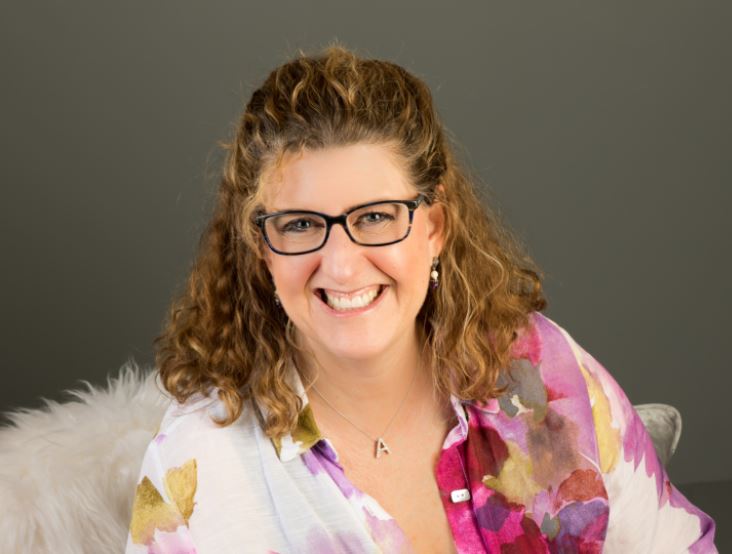Enoughis the most underutilized word in the American-English language. We should use it a lot more since it is key to confidence.
We are a society that fundamentally believes that ‘more is better’. Our socially rigged lens (and relentless social media reminders) don’t let us usually see when our lives are already rich. We sub-operate daily by feeling that we don’t have enough money, connections, happiness, or time.
Yet, most of us do.
Most of us have enough to survive, even to thrive. But when you are so busy worrying that you don’t have enough, a few terrible things happen:
- You don’t enjoy the people and things you do have – and you spend energy, money, and time continuously seeking new, shiny ones.
- You don’t cultivate important relationships to maintain those valued assets ‘enough’ so they weaken, or even die.
- You create unnecessary mental anxiety in your brain and physical tension in your body – both can destroy your mojo and shorten your life.
What a sad situation and total waste….
So, what is “enough”?
Enough is, of course, a relative term. What one person defines to be enough could be completely different than another’s. We may even change our opinion from situation to situation deeming something enough in the past isn’t enough in the present or future. For example, you had enough money when you were single but it wouldn’t be enough now that you have children.
What qualifies as enough can legitimately shift both in your head and in reality. You may find that you thought you had enough – to retire, to share, to save, to…- and then find out from an expert or article that you were wrong and actually don’t have enough according to that new info.
However, most of the time, we just assume we don’t have enough without any accurate benchmark. We believe without reason, that we need more. Yet if we look around, someone always has more money, more luck, more friends, more whatever. That doesn’t mean we don’t have enough. In fact, look around again and realize that there are always other people that have a lot less. Sadly, we are usually blind to those people who help us realize that we, fortunately, do have enough.
Enough Confidence
As we consider how this applies to confidence, the word ‘enough’ is critically important. In general, confidence is a certainty that something is true. “I am confident it is going to rain.” “I am confident that the stock market is going to stay strong.” “I am confident she will marry me.”
You feel more certain than not that these things will be true.
Whether you are an economist, a meteorologist, or a significant other, your confidence is a measure of your surety. You calculate (consciously or not) the probability (actual or estimated) and then decide how confident you are so you can act appropriately (predict the weather, ask for someone’s hand in marriage, etc.).
Will you ever be 100% certain of everything you consider doing or feeling?
Never.
Can you be certain enough now?
Absolutely.
Confidence is being certain ENOUGH in a world that is forever with too many choices and too much complexity.
You may act ‘irrationally’ against the odds if you aren’t confident enough (e.g. ask her to marry you even though you think she will likely say no), but in most cases, our actions follow our confidence. This is why we are so hung up on analytics and other quantitative measurements these days. Whether deciding to invest time, money, emotion or energy in something or someone, we want more data to feed our confidence and give us objective indicators to help us decide ‘if’ we have enough confidence to act thereafter. Data gives us surety/certainty/confidence to make smart decisions. It bridges the gap between what I feel and what I know. It’s a lifeguard when you are swimming in unknown waters – or a life insurance policy when you must take risks. Data can help us feel more confident, even if the data is partial or biased.
But we rarely have ‘enough’ data to calculate the certainty of our own everyday actions, interactions, and reactions.
So when we apply this all to Self Confidence – or as I prefer Personal Confidence – it is defined as being certain enough and acting in alignment with who you want to be and what you need or want.
This leans heavily on knowing your values and letting them guide you in all aspects of life – from who you hang out with to what you do for a living. Being secure with who you are – what you want to be known for – is the golden key that calibrates the certainty of our personal decisions. No wonder it takes 60 years for confidence to finally peak. It takes humans that long to define what is enough by finally let go of inaccurate, external validation.
Appreciating ‘enough’ is a gift and one I am only embracing as I am becoming older with clearer priorities. While I will always strive to be better, I know how empowering it is to appreciate when I have and have done enough. And I am trying to remember this anytime I am feeling unworthy or unfulfilled.
Data proves that some of the poorest people are the happiest. Why? Because they understand enough accurately. They know that ‘enough’ is a blessing.
p.s. Speaking of blessings, someone busted a myth for me recently that is perfect to share in this post. In Hebrew, ‘dayenu’ means ‘enough’ and is the title of a song sung on Passover – the holiday most known for remembering the atrocities Jews have endured and celebrating their success in surviving.
I assumed for so many years that the song was more about “enough misfortune and sadness”, I was totally incorrect. It’s about being grateful and celebrating ‘enough’ in the very positive and productive way I now know neurologically fuels confidence:
How many times do we forget to pause and notice that where we are is exactly where we ought to be? Dayenu is a reminder to never forget all the miracles in our lives. When we stand and wait impatiently for the next one to appear, we are missing the whole point of life. Instead, we can actively seek a new reason to be grateful, a reason to say “Dayenu.” From Hagadot.com


